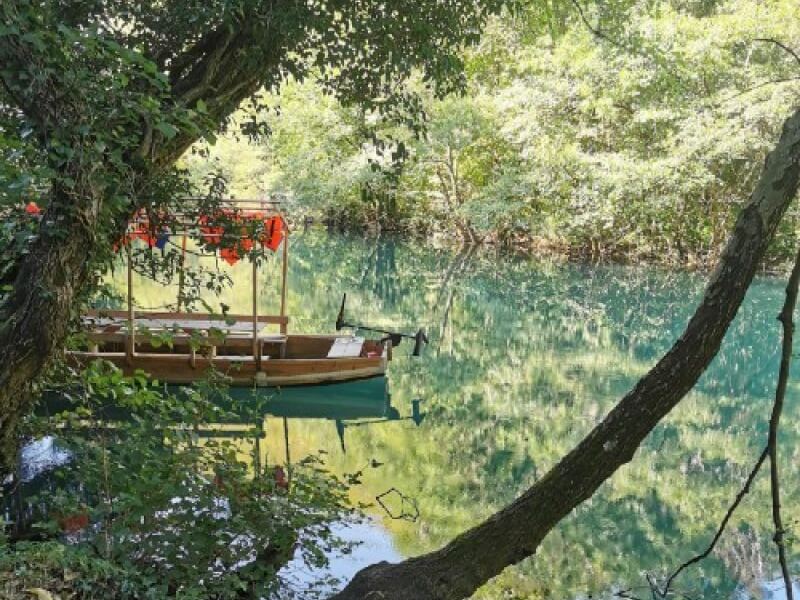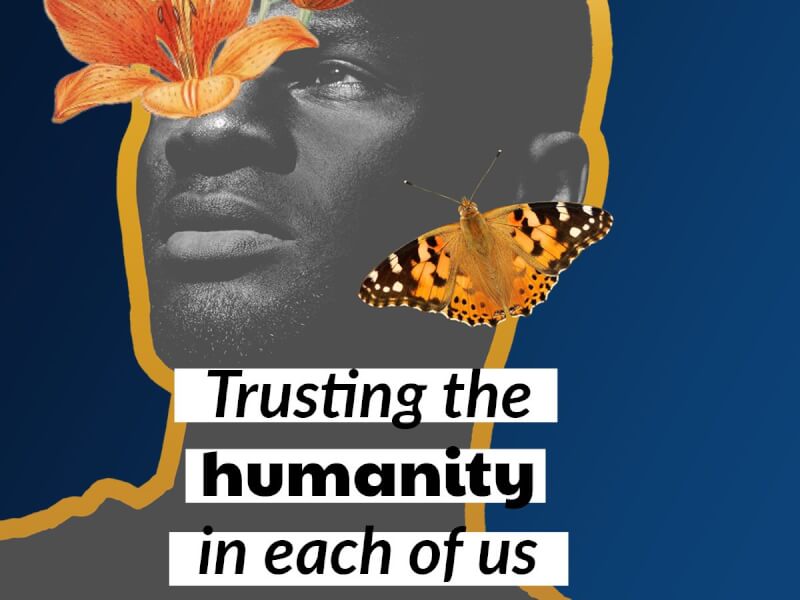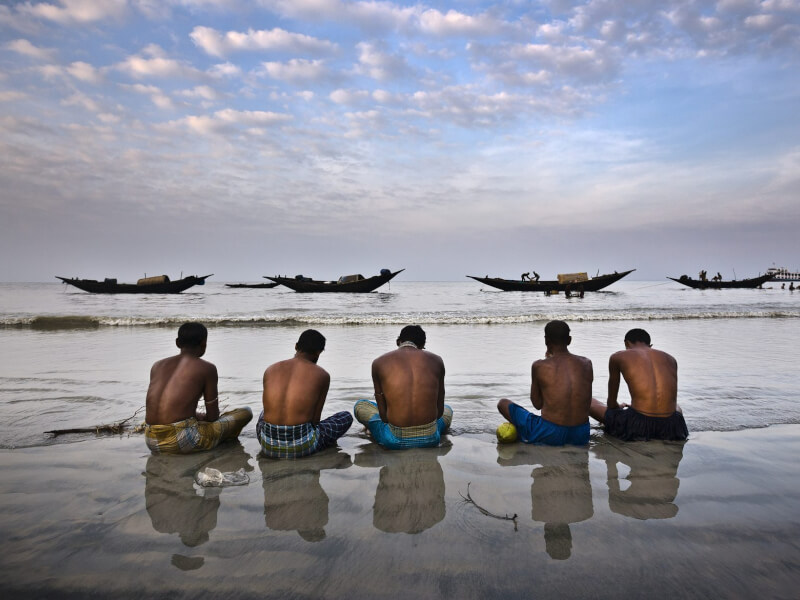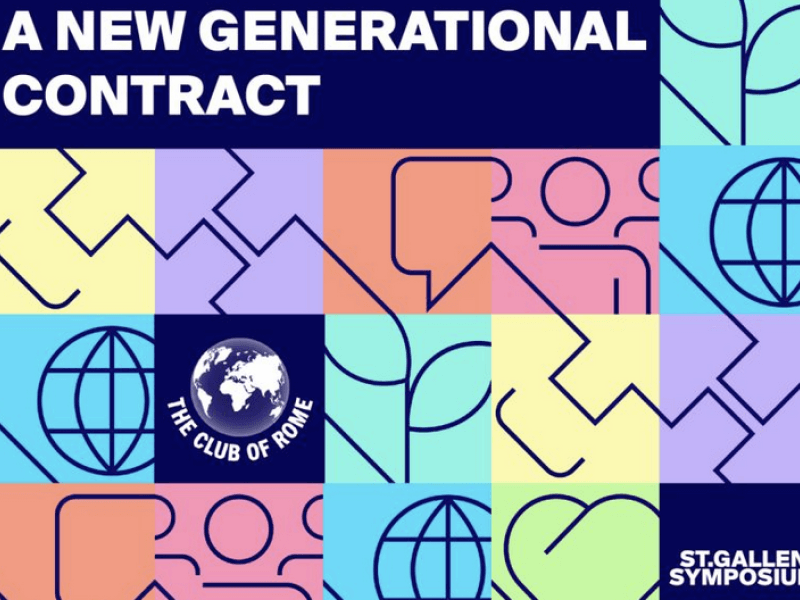23 July 2020 – Will Peoples’ Responses to the Emergencies of the Coming Decades be Warm? Or Cold?
by Nora Bateson & Mamphela Ramphele; First published in Medium.com
The crises of the moment do not need further description here. Suffice to say that the complexity of the overlapping crises of inequality, health, justice, technology, ecology and culture are producing emergencies that the institutions of the last centuries cannot contend with. How will the next decades play out amidst these crises? More importantly, what is possible for societies around the world to learn in the process?
We (Bateson & Ramphele) are going to bring our voices together on this topic, to open a conversation with a conversation. We have both been watching these patterns for decades, from different sides of the world, different experiences of life, different cultures, different generations… but we have seen something very similar. Each of us has struggled to find the thing people call “traction” for these observations we share. We have been told it was not practical, strategic, or policy oriented.
Today we are writing this together, mutually learning how to express this extremely important shift in how to approach environmental and social change. It turns out it is not traction that is needed, but relationship.
The lifeboat story: cold version: There is an old metaphor, introduced by Garrett Hardin in which a lifeboat is featured as a way to ponder the mathematics of survival. The thought experiment is explored through the lens of ethical distribution of resources. It has been applied to population, immigration, natural resources, food supplies and more. High school students are often given this ‘lifeboat ethic’ as an introduction to how hard decisions at structural levels are assessed.
In the story, there are 50 people in a lifeboat that can hold ten more people, but there are 100 people in the water. It would appear that approximately 90 people will unfortunately be left to die so that any may survive. The project then becomes a collection of ‘difficult but necessary’ questions to justify how the remaining 10 people will be selected to survive.
Who will choose who lives and who dies?
What are the criteria for those choices?
How will the ones who are on the boats be fed?
Is cannibalism a possibility? (Really, this is one of the questions.)
These. Are. Cold. Questions.
The above questions are laced with the thinking of eugenics. They are carrying the darkness of a world in which the icy objectification of how some peoples’ lives are measured, and for some… justified as disposable. They are questions that provide us with ‘information’ about the conditions of the prevailing systems that create the conditions for those sorts of questions to be asked, to be considered appropriate, to be acted upon. And right now those conditions are cracking.
This sort of approach begets cold lines of reasoning and responding. Perhaps it is an extension of the same coldness that has justified the exploitation and extraction of people and nature over the last several centuries. Willingness to objectify by assigning numeric metrics, has allowed for the illusion of control and management to infect even valiant efforts of environmental and social activism. Is it possible to respond with a warmer approach?
Another version of the lifeboat story: Like the first, we start with 50 people on the boat, 100 in the water, and ten more seats. This time the people on the boat start to figure out a way to make it work. They improvise, they learn, they tap into the complexity of themselves and each other as a source of unlimited possibilities. In the Warm Data work this is referred to as “lifeboating” — in direct contrast to Hardin’s version of the story.
People are not numbers. Those 100 people in the water, they are not bobbing numerals, they are human beings with histories, experiences, cultures, and languages. They are complex. Numbers are just numbers, they cannot source possibilities from each other, they cannot find a way when the basic arithmetic says there is none. People can. Abstracting the solutions to numbers inherently dehumanizes, and unnecessarily constrains, the spectrum of possibilities. The metric logic removes the human breadth of experience and relationship. This cold calculation flattens the scope of the thinking. We know that if one of us was in the water with 99 other people each of us would find a way. This is the magic of being a living organism. The quote from the film Jurassic Park says it clearly: “Life finds a way.”
People are not roles. A word of warning: collaboration can easily become a mechanistic allocation of effort according to roles. Alternatively, as it is in life, the living response is one of incalculable, and often surprising alternatives that the reduction of the original question to simple arithmetic completely obscured. The quantitative question eliminated the multiplicity of contexts, while a warm approach invites them back into the relationships.
This is not a matter of assessment of who is good at what and assigning roles according to expertise. On the contrary — ‘finding a way’ is about the unique possibilities that occur in relationship between particular people, in that particular water, on that particular day. There is no formula, no method, this realm of possibility is accessed through a sentiment of human care and imagination.
Perhaps some people would take turns swimming, perhaps others would tie clothing together to pull people, perhaps some would hold other’s hands and pull them. Each grouping of people would of course have a different, particular set of characters, and histories that provide their own potential responses. We are all capable of different things depending on who we are with and what they are finding themselves capable of. Capacity cannot be front-loaded, it is emergent. But it is possible to front-load a baseline perception of self, others and world that assumes the inherent multitude of stories and draws from them. With care and imagination the possibilities are endless.
Particular Complexities “find a way”: The possibilities for “finding a way” in emergencies are not countable, controllable, nor predictable. The way in which it becomes possible to respond depends upon the unique lives of the people, it depends on the water that day, it depends on the clothes they are wearing, the food they have eaten, the experiences in their lives that they had prior to being in the water. The solutions to the situation are completely contingent upon detail and they are accessed spontaneously, iteratively and simultaneously. They are as infinite as the combinations of people.
The cold questions are distracting. Possibility in the Warm Lifeboat story depends upon the likelihood that people will see each other in solidarity to finding a way. If they are asking questions around the cold numbers, they will be worried about who gets to live and who is chosen to die. In life this looks like polarizing societies with each group vying for position in the distribution of resources. Again, this colder version generates a sentiment through which the situation is met. This time the sentiment is one that is infected with the logic of decontextualization and dehumanizing metrics. The cold questions are compelling, even though they are the wrong questions. These questions are a distraction from the process of perception of the complexity of each person, and tuning into the alchemy they produce. As such they can easily hijack the limited time and morale needed to ‘find a way.’
The dark history: As it turns out, there is a reason this type of approach feels so cold. The creator of the “lifeboat ethic” Garrett Hardin actually was a eugenicist, nationalist, and white supremacist. Hardin was an important figure in the history of environmental solutions, especially known for his popularizing of the idea of the “Tragedy of the Commons.” The history of Hardin’s eugenics and nationalistic thinking have been known all along, it was never a secret. But those ideas and the sentiments under them, came to set the tone for how response to complex crises is imagined and managed. And, that is something which requires a sobering wake up, learning, and new attention to the ways in which that genre of thinking sneaks in.
Clearly Hardin is not the sole promoter of this thinking, rather, his work is indicative of a culture of thinking that has resonated with eugenics to begin with. Ironically, adopting a warm data approach on the culture reveals the receptivity to cold ideas.
What is being revealed?
As the COVID-19 pandemic has so brutally revealed, the institutions of current societies are not able to respond to the needs of the people, they are not able to meet the complexity. The complexity of the pandemic of 2020 has been an education for citizens around the world in how one tiny virus can change the daily patterns of family life completely while it also reframes trust in political, economic, cultural, and medical institutions — at the same time. It has also provided a glimpse into the possible collapse of many of these institutions, and the gaping need for something in place to provide safety.
It has become clear that the great “they” of the societal safety guardianship is not there. Citizens assumed their governments and the institutions their taxes went towards would protect them from COVID-19, but they did not. Reliance on institutions designed with a focus on assigning ‘value’ on the same basis as in the Cold Lifeboat story has proven inadequate to deal with what really matters when confronted with existential crises. Financially and structurally, the ability to help is also simply not there, there is no institutionalized sentiment to care. As crises of economy, loss of biodiversity, climate, culture, mental health and many more pile up — — no one is coming to help the communities of people who are most in need.
There are many conditions that have come to form this situation. One is a culture of individualism and separation that has produced a loss of ability to respond together to crises. Independence and a narrative of ‘separation’ have been ingrained into every phase of life, negating the deeper, more vital forms of interdependence that the future depends upon. While there are cries for collaboration and unity, they are often founded on the grounds of competition, roles, and mechanistic notions of who does what. This is not collaboration, nor is it a living response. A pre-scripted and rigid set of roles is a harbinger of an era of errors in thinking in which most aspects of daily life were modeled into industrial patterns. From education, to health, to economy, agriculture, even psychotherapy, the grid, and the engineering for ever higher levels of efficiency has permeated our lives. Incentives to compartmentalise one’s humanity hold in place artificial distinctions between organisations, institutions, communities, nations, ‘races’, individuals, and on and on it goes.
In contrast, a living response is one that builds relationships, and those relationships go on to build more relationships. Making no claims, like soil does not on the forests or meadows that it nourishes. Warm collaboration is not cloned, not a formula. It is built on values of what matters in life and the high value placed on life giving and life supporting values. Care and love matter.
At the core is perception. Perception of self, perception of others, perception of the natural world, perception of what it is to be alive. Many of our perceptions are shaped by so-called scientific facts, yet when it matters that we learn from science, we choose to ignore it as an inconvenience. For example, as Mamphela says, “Ancient history and science tell us that there is only one human race, yet we continue to speak of ‘different races’”.
And now, People NEED People. But to get there a starkly different approach is needed. And an honest look at current approaches is at hand. There is some not so pretty history lurking in the hunt for environmental solutions. As the statues of slave traders are falling in cities around the world with the Black Lives Matter movement, the need to address the hidden agendas, the blind assumptions and the ways in which elitism and control keep manifesting as eco-idealism — is a requirement. Like a detective with a black light, it is time to look at where the blood is, to check for fingerprints.
Beginning to embrace new thinking, warmer thinking — in relationship, will nourish a new version of solidarity to participate in a world of vibrant, creative and unimagined change. The warm data process familiarizes groups of people with the ways in which the contexts of their lives marinate and overlap into each other and it offers an introduction to the complexity of their own lives, so that they may better see the complexity of others. Through this discovery people begin to see how vital it is to tend to their families, communities and the land, and they are able to respond to emergencies with warmth.
Commons, Communities, Colonialism: In response to the ecological crises has been a push toward addressing what is known as the commons. The benevolence of this work always appeared watertight. Help the communities to unify, help them to be sustainable, help them find continuity. What could be wrong with that? The first question is what is a community? Is it a group that share a bio-region? Is it a cultural group? Is it a group that share an experience, such as victims of breast cancer or children with autism? Is it a group that share an activity, such as jogging with dogs, or making music? Is it an online community? A shared profession, such as doctors around the world?
So where is the commons? And how can the communities be allowed to learn in mutuality from within and between the many forms they live within? Community is complex. The multiple contexts of community are not separable, they co-inform one another. A person usually always inhabits multiple communities, in layers on layers, in relationships with relationships.
The eagerness to define community and to define set formulas for responding to the needs of community are creating a blindness to the necessary complexity, perpetuating the elimination of contexts and failing to perceive the uniqueness of the ways in which communities are alive and entangled.
Dangerously the notion of creating solutions for the commons is often inherently infected with the thinking that the ‘lifeboat ethic’ was forged in. The eugenics is there, implying control, implying scalable solutions, implying that people are numbers, that communities are equations to be solved, measured and managed. This is Newtonian physics misapplied to living systems. This may be part of the reason so many regional communities become devitalized in their community gardens, local economies and so on. The abandonment of community gardens is probably a response to the lack of on-the-ground social solidarity and mutual learning that would choose that garden, and generate the relationships that would overlap lots of communities to keep it nourished. The idea of the garden needs to be homegrown, not implemented by planners, no matter how altruistic.
Solutions to scale defy the complexity of the people, the places, the ideas and the situations. Scale is a trendy concept, and one that must be used with extreme caution. Some projects and products do scale, others do not. The distinction is badly needing attention and articulation. When is the urgency to scale a project a form of colonialism? And when is it not? When is it warm? When is it cold?
For years we have been troubled by what feels like a cold approach to developing solutions to environmental crises. Something has felt very off. It has taken time to sense and articulate what was amiss, and now that it has become clearer, there is a need to address it as coherently as possible. The process of the Warm Data Lab (and its online version People Need People) is in vibrant relationship with the Letsema Circles of conversation, and other cultures of engaging with the interdependency of life. The contrast is between approaches to engaging with complex emergencies, one cold, the other warm. Between them is both potential to meet the nearly impossible odds of humanity finding a way to co-exist, and also a keen look to the great danger of manifesting ecological solutions that serve to continue the thinking of the existing system, and perpetuate colonial, cold, eugenic responses to the present and coming emergencies around the globe.
Hope lies in the very fact that as living beings we are wired for relationship. Our humanity is only possible to express in relationship to other human beings. We exude warm data in our eyes, our smiles, our verbal and non-verbal conversations and in the importance we accord to being in relationships with others at the personal, family, community levels and in local, national and global contexts. We also have the capacity to tap into ancient wisdom to add to our store of warm data and the capabilities that get unleashed when I see you in me and me in you. Our well-being and that of our planet is possible only if we permit ourselves to perceive and embrace the rich expressions of who we are as living human communities and to find a way, in relationship. This will require warmth and rigorous attention to relational integrity above the anxiety to control.






